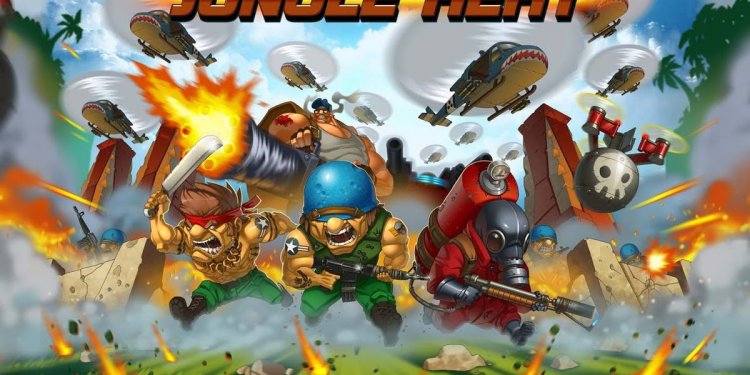
Jungle Heat APK 2014
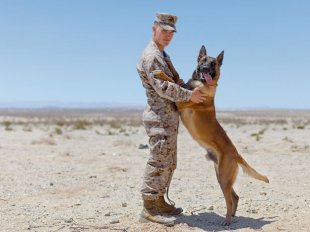
In front side of America’s soldiers, fight canines and their particular handlers lead the way on the many dangerous battlefields on the planet.
By Michael Paterniti
Photo by Adam Ferguson
Here is Marine Corporal Jose Armenta inside the tent regarding the evening prior to getting blown-up in Afghanistan. He jokes with Mulrooney and Berry while the medic the people have nicknamed “Christ.” He feeds and waters their dog, Zenit, a sable-coat German shepherd. He lets Buyes, who'll be lifeless in 3 months, ruffle Zenit’s fur, for the radioman is in love with the dog.
He then takes Zenit outside within the waning light of this dusty, wilderness otherworld to train.
They’re happiest similar to this. Jose features Zenit rest, that the dog does obediently, after which Jose jogs 50 yards down and hides a plastic toy, a Kong, facing a mud wall surface, addressing it with dirt. On Jose’s command, Zenit bursts ahead, zigging in search of it, tail-wagging. It’s an intricate party. Voice commands fulfilled by accurate canine activity, always with the same objective in mind—to find the doll. Tomorrow, on patrol, the aim would be finding maybe not a toy but an improvised volatile device, or IED, one of many Taliban’s most savagely effective tools against US soldiers here in exactly what many consider the many dangerous province in another of the world’s most dangerous nations. No dog find every bomb every time.
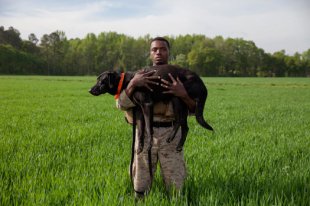 MARINE CPL. DASHNO VILLARD AMONG BANK
MARINE CPL. DASHNO VILLARD AMONG BANK
When it comes to previous 90 days Jose’s already been stationed at Patrol Base Alcatraz, on side of a city called Sangin in Helmand Province, without a “find.” Despite his optimism—the guy constantly beams a disarming smile—the lack of discovers is just starting to put on on him almost just as much as the 100-degree heat, which seems also hotter rucking 75 pounds of gear.
As a Marine dog handler, Jose is a perpetual outsider, assigned to platoons which were collectively for many years, tight-knit fight brotherhoods that respect newcomers, especially puppy handlers, with increased level of circumspection. His task is to come with that platoon, to clear a path through dangerous area for their other marines. But since thankful because they might, Jose understands it’s all-natural in order for them to ask yourself: Is this man a bit of good? Will he easily fit in? Exactly how will he react because very first firefight?
Now in August of 2011 the claimed goal in Sangin should secure the 320-foot-high Kajaki Dam, maintain the Taliban from blowing it and flooding the Helmand Valley. The marines of Third Recon, in groups of a dozen approximately, just take turns disrupting the enemy, mapping active pockets of Taliban fighters. Jose and Zenit tend to be expected to accompany virtually every objective. Each time he and Zenit venture out beyond the wire, they’re walking point and a marine holding a metal detector, making on their own the initial objectives as Zenit scours the location for any whiff of nitrate which may signal a buried IED. As exhausting because it's, Jose always says yes.
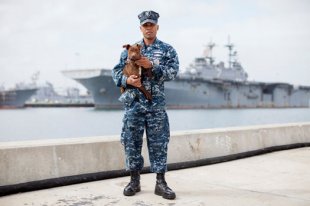 NAVY MASTER-AT-ARMS ERWIN MONTOYA AMONG CRASH
NAVY MASTER-AT-ARMS ERWIN MONTOYA AMONG CRASH
Perhaps there’s some chip on Jose’s neck, or maybe he seems there’s too much to prove—to himself, into marines of Third Recon, and his family back home. Maybe he’s just doing his task, or he needs just one discover to allay whatever doubts he harbors about his—and Zenit’s—ability to do the job. Inside spot particularly, the risk is palpable. Sangin is littered with IEDs and teeming with enemy fighters tucked at the rear of dense dirt wall space. It’s in which Uk causes, before pulling-out of Sangin completely this year, lost significantly more than 100 troops. It’s already been a graveyard since for several People in america, and someplace in which numerous U.S. soldiers have obtained disfiguring accidents.
This is exactly what your dog handler attempts not to live on: the danger linked to the should get a hold of bombs along with the risk of lacking one. On base you often hear them set off into the length, triggered by a goat, an unsuspecting villager. Often frantic residents will hurry a bleeding kid around Alcatraz for medical help. And the recent news about two other puppy handlers, Jeremy and Jasco, in the deployment, has been bad. Both were blown up and lost their feet. Jose is obvious about that: He’d rather pass away than lose a limb or some essential human anatomy part. He’d rather have waxed than be half a person. Everything do to take your mind from the anxiety is just just what Jose does today, while he has been doing the previous couple of years: You train your pet, do your job, keep the remainder to fate.
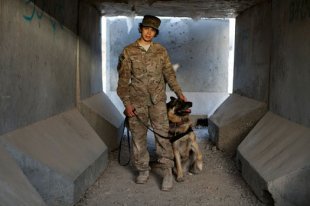 The next early morning, August 28, Third Recon understands that the Taliban have been hectic. Alcatraz sits on a rise out in the cornfields, maybe not not even close to a wadi, and intel has it that IEDs being planted every where. “We understood somebody would get struck on that goal, ” Sgt. Ryan Mulrooney will say later. “Every time something was getting blown-up. We knew moving in there it was a fairly risky motion.”
The next early morning, August 28, Third Recon understands that the Taliban have been hectic. Alcatraz sits on a rise out in the cornfields, maybe not not even close to a wadi, and intel has it that IEDs being planted every where. “We understood somebody would get struck on that goal, ” Sgt. Ryan Mulrooney will say later. “Every time something was getting blown-up. We knew moving in there it was a fairly risky motion.”
So the very first time since deploying to Afghanistan, Jose places on their “blast briefs, ” undies made of Kevlar material to limit vaginal injuries, and he mounts his helmet cam hoping to report his very first find. Then he places an IV in Zenit to help keep him hydrated within the heat.
AIR FORCE TEAM SGT. KATHELENE MERCADO AMONG BARTJA
The group moves out at 10 a.m. in ranger file, and Jose presumptions it's currently 120 levels. The marines work down the mountain slowly, as soon as they hit the 611 highway, Jose seems a surge of adrenaline. Their mouth goes cottony while he commands Zenit, orchestrating the dog’s every motion. The group veers through the corn to avoid the trail, until they strike the wadi that works parallel on highway, eight foot deep and ten feet large, bare of liquid.
Jose guides Zenit from bank to lender. Mulrooney, working the metal detector, calls on, “i do believe i obtained one right here.” Jose draws near, looks at the humped, loose dust with a wire showing, repairs Mulrooney with a grin, and states, “Yup.” The group leader is informed. Jose progresses, spies another product, and calls it out. Sensing a pattern, he sends Zenit on far region of the wadi, where the dog freezes, tail-wagging, nostrils unexpectedly working overtime. The change in behavior scars the location. After nearly one hundred days out right here, it's their very first IED as a team.















